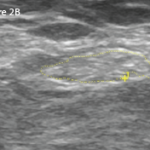“The findings,” they say, “should also inform rehabilitation models elsewhere, encouraging clinicians to focus on the most cost-effective options.”
A related study released today ahead of presentation March 16 at the American Academy of Orthopaedic Surgeons annual meeting finds that even patients who live alone can recover safely and effectively when discharged directly home after total hip or knee replacement surgery.2
In this study, there was no increase in complications or unplanned clinical events for patients living alone compared with those living with other people, and no significant differences in functional outcomes following surgery, or in reported pain.
“In the past, most surgeons have been reticent to discharge patients directly home after joint replacement surgery if they live by themselves; instead, opting for such patients to enter a rehab facility,” co-lead author Dr. William J. Hozack, an orthopaedic surgeon at The Rothman Institute in Philadelphia says in a conference news release.
“However, we found that patients living alone were able to safely recover without any increase in the rate of complications. Even more strikingly, patients were generally happy and content being in the comfort of their own home during recovery,” he notes.
In an interview with Reuters Health, Dr. Hozack’s co-lead author Dr. Andrew Fleischman, also from The Rothman Institute, notes that currently at his institution only about 10% or less of patients actually go to inpatient rehabilitation after hip or knee replacement.
“We are starting to think of it as kind of the place where the sicker patients or those without social support would go. Our study shows that even patients without social support may actually be better off at home,” Dr. Fleischman says.
“The JAMA paper, I think, is the best evidence so far that even a home program on its own is a strong candidate in terms of producing function. For patients who don’t go to inpatient rehab, the majority of centers are sending them for formal outpatient therapy for about six weeks. But the trend even for that is going in the direction of doing exercises at home and delaying the outpatient therapy to identify a smaller group of patients that actually having trouble getting good range of motion back,” Dr. Fleischman says.
References
- Buhagiar MA, Naylor JM, Harris IA, et al. Effect of inpatient rehabilitation v.s a monitored home-based program on mobility in patients with total knee arthroplasty: The HIHO randomized clinical trial. JAMA. 2017;317(10):1037–1046. doi:10.1001/jama.2017.1224
- American Academy of Orthopaedic Surgeons. News release: Even if you live alone, home may be the best place to recover after total joint replacement surgery. 2017 Mar 14.


